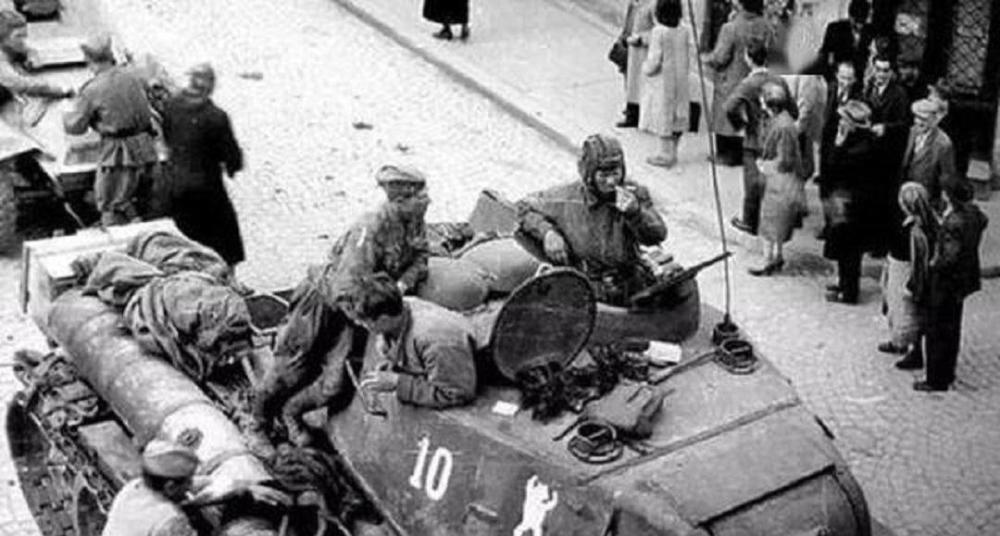World War II was the largest war in the history of human warfare, in which all countries suffered different degrees of casualties. We often say that Japan in the course of World War II was very crazy and directly chose to open the battlefield in the course of the battle, but Germany, as one of the Axis powers, actually did not hesitate to let go. We all know that Germany achieved its goal of sweeping Through Europe in the shortest possible time with the "Blitzkrieg" strategy, and then for some reason Germany set its sights on the resource-rich Soviet Union. After a brief period of army assembly and deployment, the German army marched to the Soviet Union.

Throughout World War II, there were many famous battles in the Soviet Union alone, such as the Battle of Stalingrad as we know it. So do you know which battle took 665,000 soviet troops prisoner? In fact, this battle is the Battle of Kiev, which people often talk about. And the fate of the more than 600,000 Soviet prisoners of war captured by the Germans at the Battle of Kiev?
The reason why Germany dared to attack the Soviet Union at that time was because Germany found that the industrial level of the Soviet Union was quite different from its own, and the most important thing was that the Soviet army was not as strong as the German army, and after weighing it, Germany felt that it was completely able to pocket the Soviet Union, which quickly launched an attack on the Soviet Union. The Battle of Kiev, which broke out in the Soviet-German War, directly led to the capture of 665,000 Soviet prisoners, and these prisoners all had a rather tragic ending.
Although 665,000 people is not a small number now, life in war is arguably the most valuable thing, and even more so for the enemy. The main reason why the German army captured so many prisoners in the Soviet Union was that the Ukrainian army did not have any determination to resist, and at that time there was even an absurd situation in which some troops voluntarily surrendered. Of course, this also has something to do with Germany's very strong combat capabilities.
The Germans had a very strict control system over Soviet prisoners. The system listed in great detail the prisoners to be killed, such as the Soviet political commissars, Communists, and the severely disabled, and those who procrastinated and sick during the escort were quickly disposed of. It has to be said that the German army's treatment of prisoners was really very cruel, they only provided 100 grams of bread to the prisoners every day, and then forced these prisoners to walk thirty or forty kilometers a day to the prisoner of war camp, which made many Soviet prisoners lose their lives on the road.
By the time they arrived at the prisoner-of-war camps, the Soviet prisoners still had little to do, they had to do very heavy physical work every day, but the food was even less than the previous escort process, and many Soviet prisoners lost their lives under this abuse. And the most terrible thing is that the temperature difference between day and night in the Soviet Union at that time was very large, and the weather was getting colder, and many Soviet prisoners froze to death and died of illness in a very short cold, and the ending was very miserable.
Although there were also surviving prisoners at that time, the number was very small, and they were very severely tortured in the prisoner of war camp, resulting in the unduly exhaustion of their body organs, and they died before long. And through this incident, we can also truly appreciate the horrors of war.